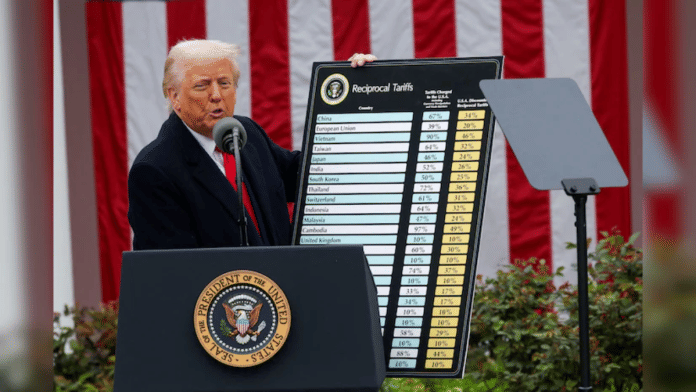New Delhi: The US Court of International Trade Wednesday struck down the ‘Liberation Day’ tariffs, ruling that Trump “overstepped” his presidential authority in attempting to impose sweeping duties on imports from key trading partners.
Despite the ruling dealing a substantial blow to Trump’s central trade strategy, the decision is unlikely to have an immediate impact on ongoing trade negotiations or on the broader economy.
The three-judge panel based in Manhattan found that the International Emergency Economic Powers Act (IEEPA) does not grant the President unlimited power to regulate foreign trade. The law, intended for addressing “unusual and extraordinary threats” in a national emergency, cannot be stretched to justify blanket tariffs aimed at correcting trade imbalances, the court ruled.
Tariffs typically require the Congressional approval, but Trump claimed he had the authority to impose them unilaterally by declaring a “national emergency.”
“The court does not pass upon the wisdom or likely effectiveness of the President’s use of tariffs as leverage. That use is impermissible not because it is unwise or ineffective, but because [federal law] does not allow it,” the court said in its ruling.
Officials from the Trump administration had warned the court that invalidating the tariffs could jeopardise a fragile trade truce with China and destabilise diplomatic efforts elsewhere, even citing an alleged role in brokering a ceasefire between India and Pakistan.
But the court dismissed these arguments, affirming that only the Congress holds the constitutional authority to regulate foreign commerce.
Also Read: Trump tariff diplomacy is reversing Modi’s protectionist decade
Tariff on hold, talks to continue
Trump unveiled the tariff plan on 2 April, targeting countries with significant trade surpluses with the US, including China and the European Union. His administration framed the move as necessary to protect American manufacturing and reduce the $1.2 trillion trade deficit.
However, within a week, many of the harsher tariffs were paused due to market volatility and pushback from domestic industries. On 12 May, the administration announced a temporary rollback on tariffs targeting China while broader trade talks proceeded.
The ruling immediately invalidated all tariffs imposed under IEEPA since January. However, it does not affect other tariffs issued under different legal provisions, such as those targeting specific industries like steel and automobiles.
The White House filed a notice of appeal within hours of the decision and criticised the court’s intervention. White House Deputy Chief of Staff Stephen Miller on social media called the ruling as an out of control “judicial coup”.
The judicial coup is out of control. https://t.co/PRRZ1zU6lI
— Stephen Miller (@StephenM) May 28, 2025
However, post the ruling, the US dollar surged, and equities across Asia and Wall Street futures rose on news that the blanket tariffs had been blocked, Reuters reported.
For businesses and consumers, the immediate impact is limited. Many of the tariffs had not yet been enforced, and ongoing trade talks with major partners were already moving toward more negotiated outcomes.
The ruling emerged from two lawsuits: one from a coalition of 13 states and another from small American businesses claiming the tariffs would harm their operations. At least five additional legal challenges remain pending.
Oregon Attorney General Dan Rayfield, representing one of the lead plaintiffs, hailed the decision as a victory for the rule of law. “This ruling reaffirms that our laws matter, and that trade decisions can’t be made on the President’s whim,” he was quoted by Reuters as saying.
(Edited by Tony Rai)
Also Read: US targets cheap products coming in from China. What’s the ‘de minimis’ loophole it’s trying to plug






